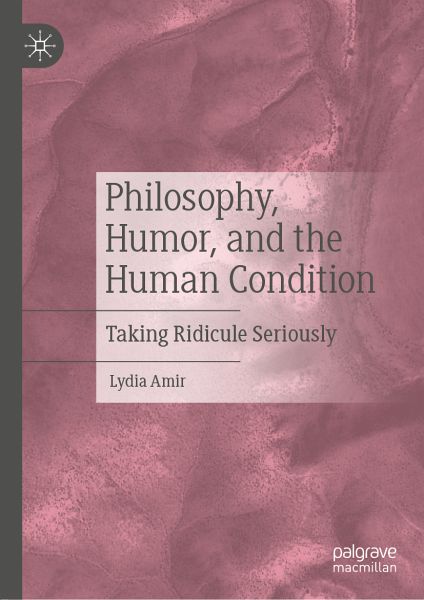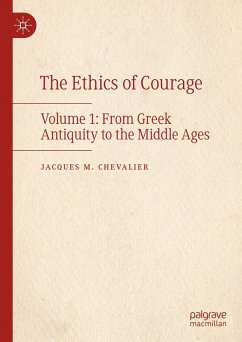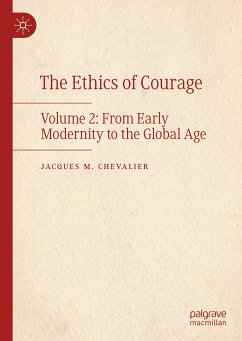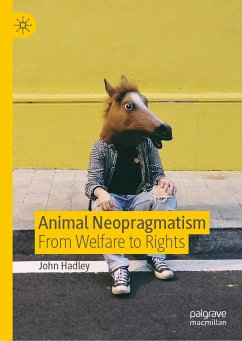
Philosophy, Humor, and the Human Condition (eBook, PDF)
Taking Ridicule Seriously
Versandkostenfrei!
Sofort per Download lieferbar
64,95 €
inkl. MwSt.
Weitere Ausgaben:

PAYBACK Punkte
32 °P sammeln!
This book presents an original worldview, Homo risibilis, wherein self-referential humor is proposed as the path leading from a tragic view of life to a liberating embrace of human ridicule. Humor is presented as a conceptual tool for holding together contradictions and managing the unresolvable conflict of the human condition till Homo risibilis resolves the inherent tension without epistemological cost. This original approach to the human condition allows us to effectively address life's ambiguities without losing sight of its tragic overtones and brings along far-ranging personal and social...
This book presents an original worldview, Homo risibilis, wherein self-referential humor is proposed as the path leading from a tragic view of life to a liberating embrace of human ridicule. Humor is presented as a conceptual tool for holding together contradictions and managing the unresolvable conflict of the human condition till Homo risibilis resolves the inherent tension without epistemological cost. This original approach to the human condition allows us to effectively address life's ambiguities without losing sight of its tragic overtones and brings along far-ranging personal and social benefits.
By defining the problem that other philosophies and many religions attempt to solve in terms we can all relate to, Homo risibilis enables an understanding of the Other that surpasses mere tolerance. Its egalitarian vision roots an ethic of compassion without requiring metaphysical or religious assumptions and liberates the individualfor action on others' behalf. It offers a new model of rationality which effectively handles and eventually resolves the tension between oneself, others, and the world at large.
Amir's view of the human condition transcends the field of philosophy of humor. An original worldview that fits the requirements of traditional philosophy, Homo risibilis is especially apt to answer contemporary concerns. It embodies the minimal consensus we need in order to live together and the active role philosophy should responsibly play in a global world. Here developed for the first time in a complete way, the Homo risibilis worldview is not only liberating in nature, but also illuminates the shortcomings of other philosophies in their attempts to secure harmony in a disharmonious world for a disharmonious human being.
By defining the problem that other philosophies and many religions attempt to solve in terms we can all relate to, Homo risibilis enables an understanding of the Other that surpasses mere tolerance. Its egalitarian vision roots an ethic of compassion without requiring metaphysical or religious assumptions and liberates the individualfor action on others' behalf. It offers a new model of rationality which effectively handles and eventually resolves the tension between oneself, others, and the world at large.
Amir's view of the human condition transcends the field of philosophy of humor. An original worldview that fits the requirements of traditional philosophy, Homo risibilis is especially apt to answer contemporary concerns. It embodies the minimal consensus we need in order to live together and the active role philosophy should responsibly play in a global world. Here developed for the first time in a complete way, the Homo risibilis worldview is not only liberating in nature, but also illuminates the shortcomings of other philosophies in their attempts to secure harmony in a disharmonious world for a disharmonious human being.
Dieser Download kann aus rechtlichen Gründen nur mit Rechnungsadresse in A, B, BG, CY, CZ, D, DK, EW, E, FIN, F, GR, HR, H, IRL, I, LT, L, LR, M, NL, PL, P, R, S, SLO, SK ausgeliefert werden.












